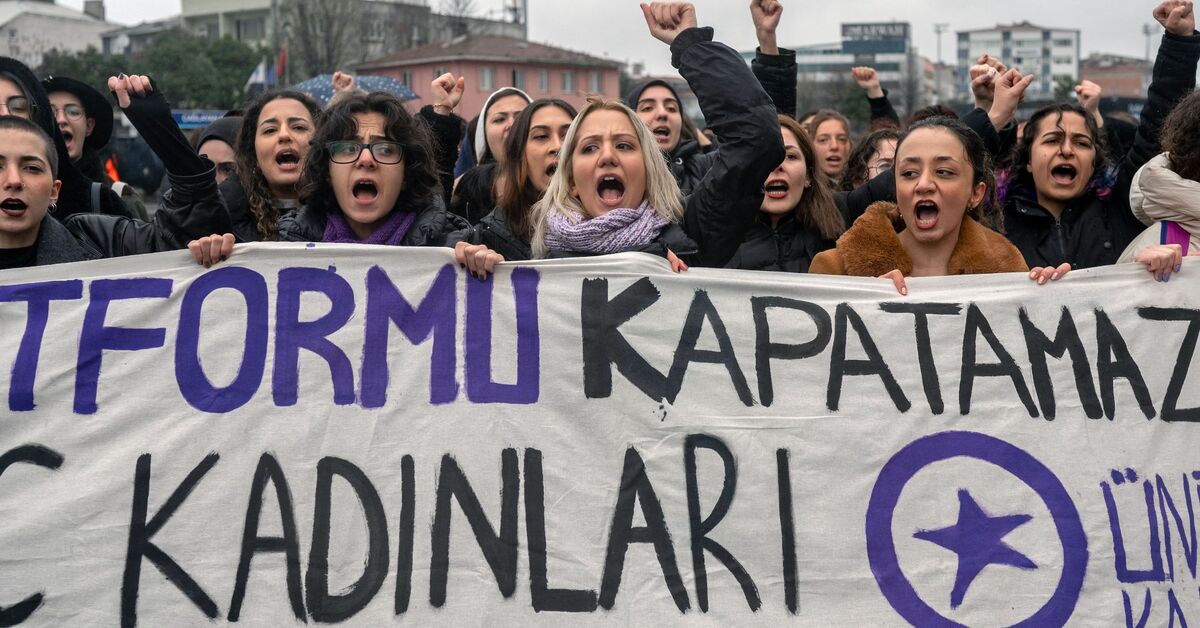Turkey denies female inmate access to tampons
ANKARA — Turkish authorities’ denying a female inmate’s access to disposable tampons sparked online outrage among women’s rights supporters in Turkey on Monday after prominent human rights activist Cigdem Mater, who has been behind bars for over a year, said her request for tampons was repeatedly denied.
Mater, who is serving an 18-year sentence over allegedly plotting to “overthrow” the government, detailed the suffering she is enduring in an article she wrote for Turkish news website Bianet on Monday. She recounted that her request to access disposable tampons that were not available in the prison store was rejected several times by Turkish authorities, including a physician who claimed that Turkish women do not use tampons.
“The canteen sells only hygienic pads, not tampons, so I petitioned for it,” Mater wrote. “My request was rejected by the [Justice] Ministry on the grounds that ‘tampons are not among designated products to be sold in the canteen.’ I thought I could have the gynecologist prescribe them to me. Yet the (male) physician who pays biweekly visits to the prison from Sadi Konuk Hospital rejected my request on the grounds that ‘Turkish women do not use tampons’ — the moments when we realize that even tampons have a nationality.”
For female prisoners, proper access to menstrual products has been a problem in many developed and underdeveloped countries alike, but using tampons is sort of a taboo for many women in Muslim-majority Turkey as in other Muslim-majority countries due to a misconception that tampons could damage the hymen and, therefore, virginity. “I can’t prove this, but I swear those who make the list of designated products to be sold at canteens and those who approve them are all males,” Mater noted.
Her article sparked an online fury among women’s rights activists. “Stop turning women’s lives to hell. Women will not ask you what to use or not during menstruation. We are fed up with your arrogance,” Aylin Nazliaka, head of the women’s branch of the main opposition Republican People’s Party, tweeted.
“Now, I can’t prove this but I swear that if it had been men who had periods, prison canteens would be full of every product from hygienic pads to tampons to full-size menstrual cups,” Mater wrote.
Mater also recounted in her article other discriminatory practices female inmates face, shedding light on gender-based discrimination in Turkish prisons. She said that while male prisoners can have a haircut once every 15 days, women in her prison saw a hairdresser only once every 14 months. “In the wards, women cut their hair with small nail clippers,” she added.
“In men’s prisons, men can receive new clothes from their visitors every week. We can only receive those once a month at Bakirkoy,” she wrote. Mater has been behind bars at Istanbul’s Bakirkoy prison after being convicted in a trial that was widely slammed as aiming to silence dissent against Turkey’s President Recep Tayyip Erdogan.
In her article on Monday, Mater argued that even the prison’s architectural design was encoded with patriarchal ideology. “We can even describe its architecture as a healthy cis-male,” she wrote, as she was telling how the prison’s intercom cabin failed to recognize the presence of her fellow inmate, Mucella Yapici — another prominent rights activist — because she was short.
“’It says no human was detected inside,’ called out Mucella from the cabin where she entered to phone her daughters. … The cabin failed to detect Mucella’s height as it was built based on male measurements,” Mater noted, adding that the problem was resolved through a grocery store box on which Yapici could stand as she was making her phone calls.
A Turkish court in April 2022 convicted Mater and Yapici as well as six other activists including philanthropist and businessman Osman Kavala of attempting to overthrow the government over their involvement in nationwide anti-government protests in 2013, sparking an international outcry from international civic groups. The US State Department slammed the charges as “unjust” at the time, calling on Ankara to cease “politically motivated” prosecutions.



